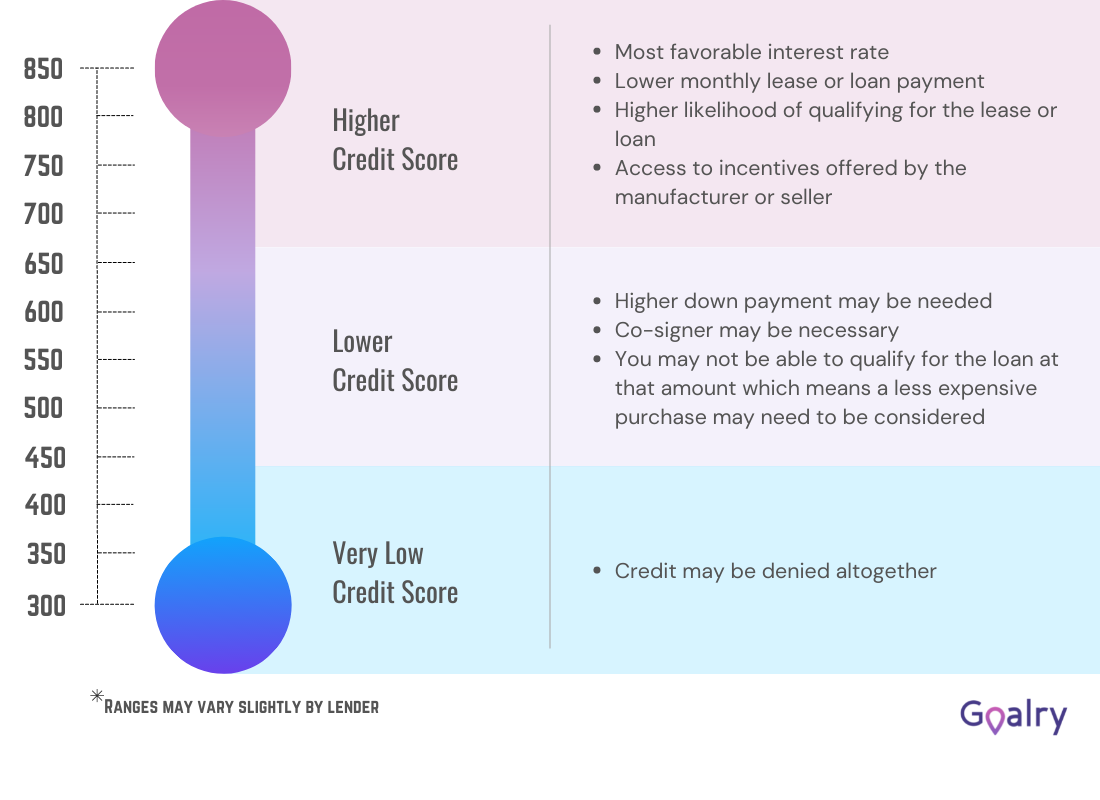Applying for a personal loan is easy, but to get an approval is the hard part. There are several factors that determine your ability to get a personal loan; income being one of them. Therefore, the question “How Much Income do you Need to get a Personal Loan” is a relatively important one. Before we answer it, let’s talk about personal uses and the basics.
Some seek a personal loan to consolidate debt or improve their own credit score. It’s all about making available credit more accessible for other parts in your life. When it comes to gaining financial empowerment, one way to achieve this goal is securing a personal loan to improve your own credit situation.
Unlike other forms of financing, unsecured personal loans don’t require collateral to be put up before gaining approval from a lender. It’s important to remember that you will have to pay back the loan at some point. You can make the process go much easier if you plan out a timeframe to pay off the personal loan as this approach avoids any chance of being overwhelmed by the entire process.
How Much Do You Need to Make to Get a Loan
A personal loan is requesting a set amount of money that can range from $1,000-to-$100,000. The lender’s requirements are all based on personal and financial information. One of the main requirements answered by the information submitted is how much income do you need to get a personal loan.
It is important to note that when it comes to getting a personal loan there is no set income requirement. The above figures are simply average markers. Each lender will have difference requirements. Income also just one factor in the lenders underwriting criteria.
What Is The Minimum Salary to Get a Personal Loan
When you’re applying for a personal loan, the lender must be confident that you have the capability to repay the loan. There is no set dollar amount that can secure a personal loan. Instead, you must at least qualify for the minimum income requirements that do vary with the terms of the personal loan. Again, it will come down to how much income do you need to get a personal loan.
The one plus that is in your favor will be having a good, steady income. But, if you have high debt, you might not be able to meet the monthly payment requirements. You will need to show how much disposable income is available each month as this number will show your money management skills.
Do You Need Proof of Income For a Personal Loan
You will need to show proof of income when applying for a personal loan. The standard form of documentation to prove income is showing pay stubs for a period of three months. Lenders use this proof to verify the borrower’s ability to repay back a personal loan. Before personal loan shopping based on your income, it’s smart to research the type of proof of income most lenders are looking for on an application form before approving a personal loan.
The reason to research how to get personal loan online could be if a proof of income verification is missing from the application packet, then your approval for a personal loan could be greatly jeopardized. Plus, research this topic will help answer how much income do you need to get a personal loan.
Why Does a Lender Need This Information?
Showing pay stubs will confirm that you’re a “W2 employee”. Other workers like self-employed or independent contractors will have to show other forms of employment documentation that will confirm their income amount. Lenders will need verification of their current financial state before determining how much income do you need to get a personal loan.
If your occupation on a tax form is self-employed or independent contractor, then you will also need to show proof of income. Usually, a lender will require you to show some form of regular depositing into your bank account as this will confirm that you do have a consistent source of income coming into your home each month. Other financial documents may be required during the review of your personal loan application. This information will help to determine how much income do you need to get a personal loan.
How Much Personal Loan Can I Get on My Salary
When, it comes to obtaining a personal loan, the guidelines on what a person can afford are very clear. It’s important to take a look at your own financial situation as there are questions that must be answered before moving forward. The biggest question is how much income do you need to get a personal loan.
One way to get a better understanding on how much personal loan can a person get on their salary is beginning the application process with a lender. After all, the lender’s main interest is keeping their business doors open. This is only accomplished by limiting the amount of money offered to potential borrowers. They achieve this by offering the right affordable dollar amount to a borrower who then can pay it back over time. Lenders determine how much income do you need to get a personal loan by the information submitted on the loan application. This course of action prevents them from losing money on the loan.
Income Types to Calculate
Most personal loans come with terms of two-to-five years. Most lenders will require you to fill out an application and authorize a credit check. The types of personal loans are either a single or joint. The difference is requiring one signature or multiple signatures on the final documents. The typical underwriting requirements include a minimal credit score between 640-750. It also requires your debt-to-income ratio being no higher than 45 percent.
Even, if you have a low percentage number, but have a large amount of credit card debt, you may have trouble getting approval for a person loan despite holding a high-salary job. The main reason is you’re too big a risk defaulting on the loan.
Here are important financial definitions in relation to determining how much income do you need to get a personal loan:
Income Definitions
- Term is the length to pay back the loan. Often, when a lender is calculating and determining how much income do you need to get a personal loan, they will ask you how many years you need to repay the loan.
- Interest Rate is the percentage of your loan balance that the lender will charge a rate over time.
- Gross Income is all money you earn and account for on income taxes for the year. This figure excludes untaxed income like government benefit payments or money you collect from renting property.
- Untaxed Income is funds you recieve monthly, but aren't subjected to paying taxes each year. This type of income could include work pension, social security, disability and child support. All fall under the untaxed income umbrella
- Rental Income is the amount of money you earn from renting an apartment, home or any other living quarters. Once again, it's the number accumulated before taxes.
Individuals that fall short of the above criteria can still obtain a personal loan. At least, as long as they can afford to make monthly payments to repay the lender back. You may be eligible to borrow an amount of money between $1,000-$5,000. How much income do you need to get a personal loan you will know when you look at the information on the application.
Borrowers will list all income earned as some falls under the heading entitled “reasonable expectation of access”. This terminology has a broad definition. Unfortunately, there is no guideline to calculate irregular income unless a person reports this amount on their tax return. It’s smart to use common sense when reporting income on a personal loan application. This information will help to answer how much income do you need to get a personal loan.
Other Factors Besides Income
Lenders look at factors like your credit score, your debt-to-income ratio (DTI), what you intend to use your funds for, number of other times you’ve looked for credit and sometimes even look into your employer.
The loan can serve in a number of ways. Some borrowers will use the money from a personal loan to get through an emergency situation. Others will pay off outstanding credit balances in order to get their finances in order to make a “big ticket item” purchase in the future.
The basics of a personal loan for a borrower is having a fixed monthly payment plan, a repayment timeline and securing an interest rate that is based on your current employment status and how much money you make in a given year. Besides offering your own credit score, you will need to figure out the exact amount of money needed to borrow, and the length of time you will need to pay back the loan. This information helps the lender determine if you (the borrower) have the capacity to repay a personal loan back.
The lender will want some assurances that you will be able to make the scheduled payment each month and still have the ability to weather other untimely expenses that will add debt to your finances.
What Credit Score Do I Need For a Personal Loan
Credit scores play a major role in what type of personal loan a person can obtain. Most lenders will offer personal loans up to $50,000. Other lenders will offer loans up to $100,000 to those borrowers who have an excellent credit score and hold a high income job. The more positive you can be in your credit history, the more money you will likely get in a personal loan.
An average credit score is between 620-679 and a poor credit score fall under 580. If your credit score is below this range, you can still secure a personal loan. You may have to use your personal (car, home or land) property as collateral to gain a secured loan from a lender. These types of personal loans come with a higher interest rate. It remains all throughout until you pay back the lender in full. Plus, the lender will repossess the property if the borrower defaults on the personal loan.

Using Collateral to get a Personal Loan
Most cases, individuals aren’t required to put down something of value as collateral in an unsecured loan. The lender may place a cap dollar amount on how much a person can borrow based strictly on their yearly salary. If you don’t own property that has some value, then you might want to reconsider your situation and work on rebuilding your credit score.
If you have provided all the information necessary to qualify for a personal loan, then once you’re approved, the money will be deposited into your bank account as fast as one business day. However, this is all based on a lender’s personal loan process.

Blaine Koehn is a former small business manager, long-time educator, and seasoned consultant. He’s worked in both the public and private sectors while riding the ups-and-downs of self-employment and independent contracting for nearly two decades. His self-published resources have been utilized by thousands of educators as he’s shared his experiences and ideas in workshops across the Midwest. Blaine writes about money management and decision-making for those new to the world of finance or anyone simply sorting through their fiscal options in complicated times.
